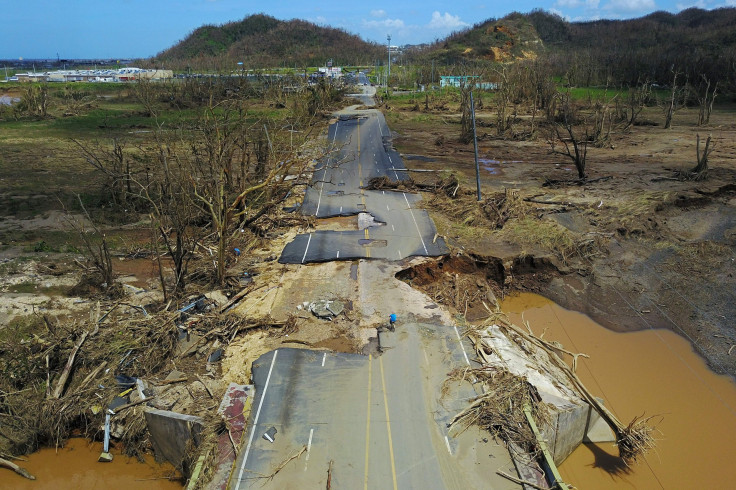Puerto Rico Whitefish Energy Deal Will Be Audited After It Raised Questions

A deal last week that gave $300 million to relatively unknown Whitefish Energy Holdings to help Puerto Rico rebuild its electrical grid raised some eyebrows. Puerto Rico Gov. Ricardo Rosselló announced Tuesday night the deal would be scrutinized. The U.S. House of Representatives will also take a look at the contract.
Whitefish Energy is a company started only two years ago and has only two employees, and was seen as an odd choice to take on such a monumental task as helping to rebuild Puerto Rico’s decimated power grid. Over 75 percent of the country is still without power after Hurricane Maria hit Puerto Rico last month.
The fact that company is based in Whitefish, Montana, the hometown of Secretary of the Interior Ryan Zinke who knows the owner, Andy Techmanski also raised questions.
Puerto Rico’s state-owned Puerto Rico Electric Power Authority (Prepa) inked the deal with Whitefish to restore three to four transmission lines or more than 100 miles of Prepa’s 2,500 miles of lines, according to NPR Tuesday. The bill would be footed by the Federal Emergency Management Agency.
The contract is 300 times the company’s annual revenue of $1 million.
“It is concerning that the task of rebuilding Puerto Rico's energy grid — the biggest infrastructural rebuilt in the United States since Hurricane Katrina - is being contracted solely with Whitefish Energy,” said Florida Rep. Darren Soto to the BBC Wednesday.
Soto, a Democrat, said he will be requesting an investigation from the Department of the Interior's Inspector General.
The House Committee on Natural Resources said it will also examine the deal.
“The size and unknown details of this contract raises numerous questions,” said Parish Braden, a committee spokesman to NPR. “This is one of many things the committee is taking a close look at as it continues to work with the resident commissioner, governor's office, and oversight board to ensure Puerto Rico's recovery is robust, effective and sustained.”
In cash-strapped Puerto Rico, every dollar counts. The grid was in poor shape even before Hurricane Maria and Prepa declared bankruptcy in July. Puerto Rico could run out of money as early as the end of October, according to the Washington Post.
Typically after a disaster utility companies will work other public utilities in mutual aid, instead of contracting out to private companies. Prepa is part of the American Public Power Association (APPA), a non-profit that represents public utility companies. APPA helped coordinate efforts in Florida and Texas to get help from other public utility companies.
Prepa did not reach out to APPA for a mutual aid.
UTIER, the union that represents Puerto Rican electrical workers were dismayed at the price the outside labor Whitefish subcontracted out would cost.
“We need support and help, but under these conditions it is impossible and questionable. Who allowed this?” the group tweeted Tuesday.
Necesitamos apoyo y ayuda pero bajo estas condiciones es imposible y cuestionable. Quien permitió esto? @AEEONLINE @ricardorossello pic.twitter.com/1gLHbBFmF4
— UTIER (@utier) October 24, 2017
© Copyright IBTimes 2024. All rights reserved.





















